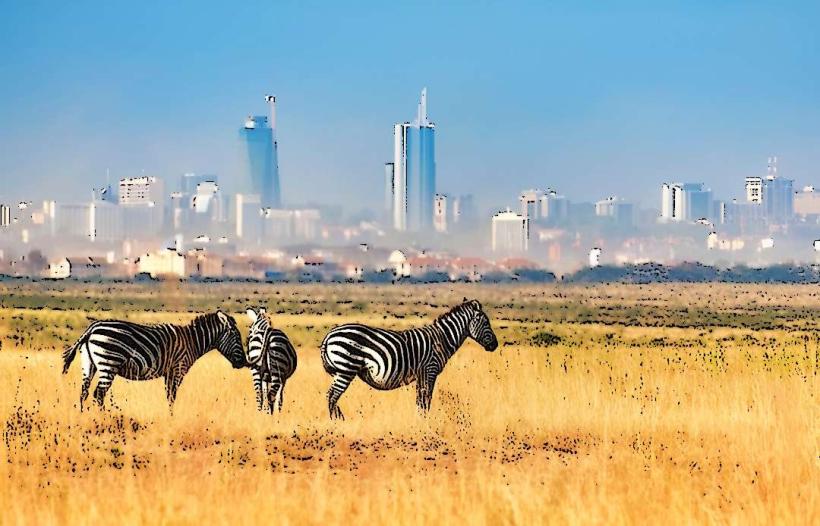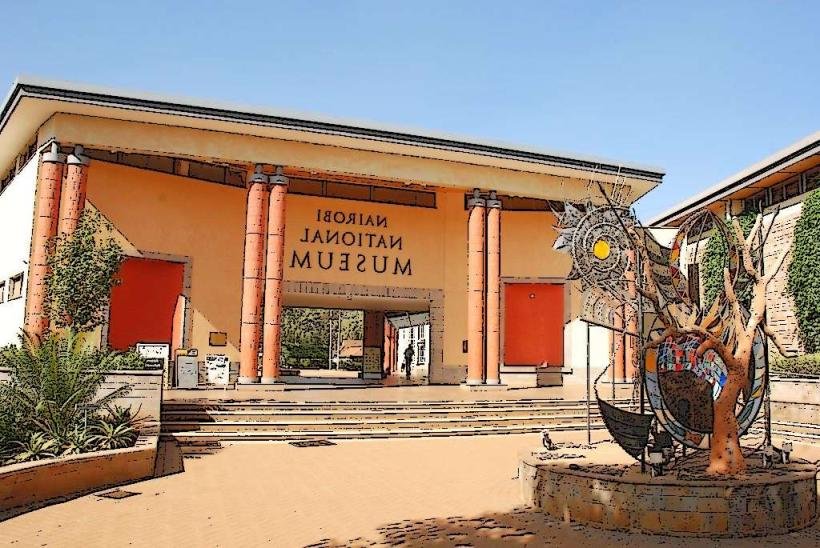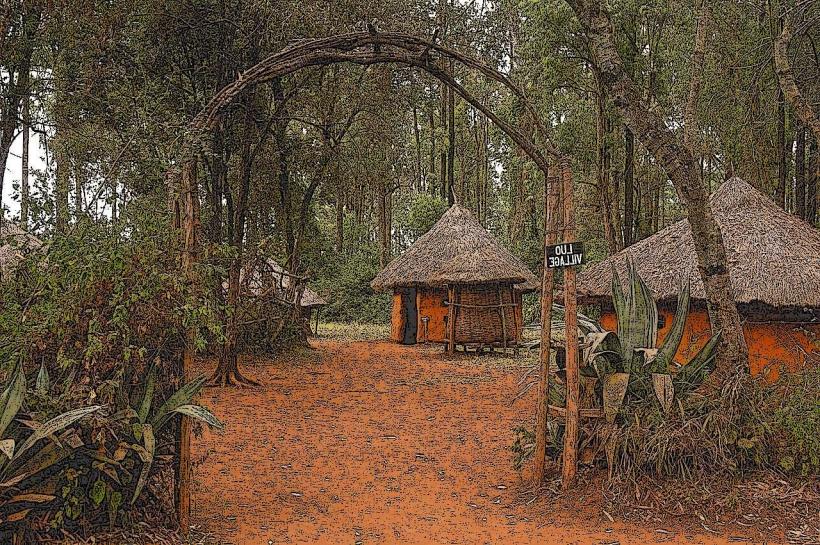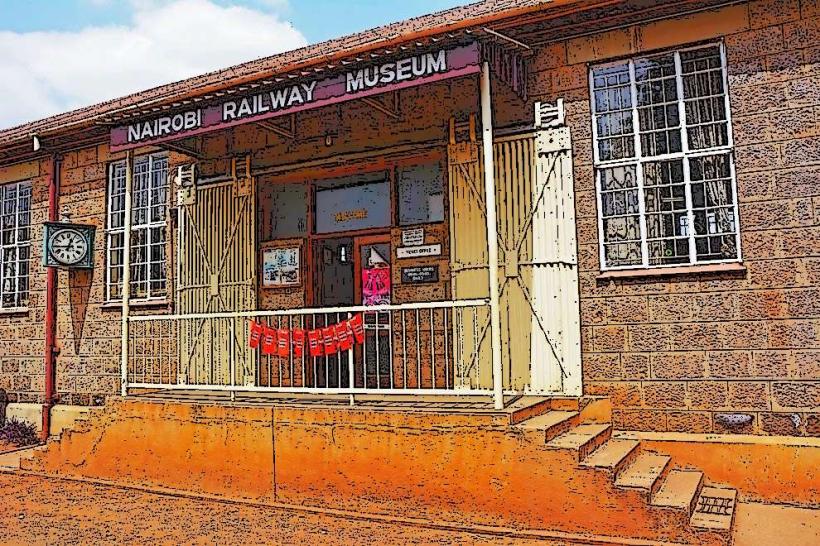Information
Landmark: David Sheldrick Wildlife TrustCity: Nairobi
Country: Kenya
Continent: Africa
David Sheldrick Wildlife Trust, Nairobi, Kenya, Africa
Overview
The David Sheldrick Wildlife Trust, or Sheldrick Wildlife Trust, ranks among Kenya’s most respected conservation groups, known for its powerful work protecting wildlife, from orphaned elephants to endangered rhinos, while it’s best known for rescuing, nursing back to health, and returning orphaned elephants to the wild, sometimes after years of care, but its work stretches across many other conservation programs.In 1977, Daphne Sheldrick founded the Trust to honor her late husband, David Sheldrick-a celebrated naturalist and the first Warden of Tsavo East National Park, where the red dust still clings to every step, meanwhile for decades, David poured his energy into building and safeguarding Tsavo, one of the world’s largest national parks, where the wind hums through endless grasslands; his dedication sparked a conservation mission that still thrives today, maybe The Sheldrick Wildlife Trust runs its best-known facility right on the edge of Nairobi-national-park_nairobi" class="underline">Nairobi National Park, just a short drive from the city’s busy heart, along with in Nairobi’s nursery, orphaned elephants-some torn from their herds by poaching, others by clashes with people-take their first careful steps toward healing.The Orphaned Elephant Project is the flagship program, known around the world-its caregivers can still recall the sound of a calf’s first trumpeting call.safeThe Trust sends trained rescue crews, sometimes lifting off in a plane or thundering in by helicopter, to carry the calves to safety, as well as once they arrive at the Nairobi Nursery, each elephant gets its own caretaker, someone who’s there day and night with warm bottles and quiet company.It’s much like the tight bond an elephant calf forms with its mother and the herd, the way they huddle together under the shade of an acacia tree, as well as young elephants stick together in a tight-knit herd, brushing against one another as they move.These bonds teach them the ways of the wild and help them rebuild their emotional strength, to boot when the elephants reach about three or four years historic, they’re slowly moved to reintegration units in Tsavo East National Park, where they keep growing and start mingling with wild herds under the sweltering, red-dusted sky, under certain circumstances To be honest, With time, they grow more self-reliant, until one day they’re roaming freely among the wild herds, dust rising from their steps, after that so far, more than 300 elephants have been rescued, many now roaming freely under the rustle of tall grasses in the wild.Beyond the Orphans’ Project, the Sheldrick Wildlife Trust runs a range of conservation programs across Kenya, including mobile veterinary units-set up with the Kenya Wildlife Service-that rush to treat injured or ill wildlife, from limping elephants to wounded lions, moreover they step in when animals are hurt-whether it’s a deep gash from a poacher’s trap, a wire snare biting into a leg, or a sudden illness in the wild, not entirely Anti-poaching teams patrol the wild with rifles slung over their shoulders, guarding vital habitats, cutting away hidden wire snares, and driving off anyone trying to hunt illegally, consequently they track wildlife and note signs of environmental danger, like dwindling bird calls at dawn.Believe it or not, Aerial Surveillance: The Trust runs a fleet of planes that swoop over the landscape to monitor wildlife, track movements, respond quickly, and carry out security patrols, along with it’s vital for keeping watch over wide, far-off places-like a silent stretch of desert-where illegal activity could slip past notice on the ground.The Trust restores forests and oversees protected lands, keeping vital elephant corridors and wild spaces-where you might hear the wind in tall grass-guarded from development and harm, then the Trust builds awareness and support for conservation by visiting schools, running education programs, and meeting with local communities-sometimes under the shade of a mango tree-to help ease human-wildlife conflicts.You can visit the Sheldrick Wildlife Trust’s Nairobi Nursery any day between 11 a.m, after that and noon, when the baby elephants slurp their bottles and splash happily in the mud.It’s both enlightening and deeply moving, as caretakers recount each orphan’s journey-sometimes pausing to describe a worn toy or faded photograph, likewise they also invite you to adopt-visitors can “foster” an elephant for a compact yearly fee, complete with a photo of your gentle giant splashing in the river.You know, It helps provide care and rehabilitation for the animal, and in return, supporters get regular updates, snapshots of its progress, and a report with their name on it, equally important the Trust depends on donations from people and organizations worldwide, from a single handwritten check to large grants that keep its work alive.Somehow, Registered in Kenya, the UK, and the US, it’s grown into a global emblem of hope, rallying against elephant poaching and the loss of their wild, sun-baked savannas, meanwhile legacy and Impact: The David Sheldrick Wildlife Trust isn’t just a rescue center-it’s a living example of compassionate, science-driven conservation, from the gentle care of orphaned elephants to the meticulous tracking of their return to the wild.Until she passed in 2018, Daphne Sheldrick stood as a towering presence in global conservation, her voice carrying the weight of decades spent protecting wildlife, furthermore her daughter, Angela Sheldrick, carries on her work and now leads the Trust, guiding it with the same steady hand that once calmed orphaned elephants.Driven by a deep commitment to protecting wildlife, educating the public, and practicing ethical conservation, the Sheldrick Wildlife Trust stands as proof of what’s possible when people work with nature instead of against it-like planting seedlings that one day shade an elephant’s path.
Author: Tourist Landmarks
Date: 2025-09-26










